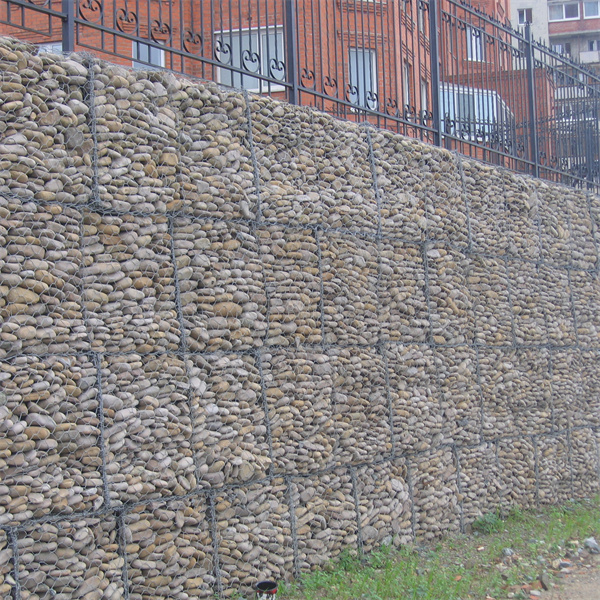ທ.ວ. . 04, 2024 13:40 Back to list
Gabion Wall Supply Manufacturer Offering Quality Materials for Construction Projects
Understanding Gabion Wall Supplies A Comprehensive Guide for Builders and Designers
Gabion walls have emerged as a popular choice in construction due to their durability, environmental benefits, and aesthetic appeal. Made from a series of wire mesh baskets filled with rocks, stones, or other materials, gabion walls provide effective erosion control, soil stabilization, and noise reduction. As the demand for sustainable building solutions continues to grow, the supplies and services associated with gabion wall construction are becoming increasingly crucial.
1. What Are Gabion Walls?
Gabion walls consist of large, wire mesh containers that are filled with natural stones or other inert materials. These walls can be used in a variety of applications, including retaining walls, noise barriers, and decorative features in landscaping. The flexibility and permeability of gabion structures allow them to withstand shifting soil and water pressure better than traditional walls.
2. The Advantages of Gabion Walls
- Durability Gabion walls are resistant to weathering and degradation, making them a long-lasting solution. The stones inside the wires hold together well, ensuring the structure remains intact even under pressure.
- Environmental Sustainability Using locally sourced stones and recyclable materials for the wire mesh makes gabion walls one of the more environmentally friendly options in construction. They allow natural drainage, reducing water buildup and minimizing erosion.
- Cost-Effectiveness Gabion walls can be more affordable than other traditional retaining wall materials like concrete or blocks since they often require less specialized labor and can use inexpensive locally sourced materials.
- Versatility They can be adapted for various uses in civil engineering, landscaping, and architectural designs. Developers can customize gabion walls to meet the unique needs of a project.
3. Essential Gabion Wall Supplies
Building a gabion wall requires specific materials and equipment. Understanding these supplies is essential for achieving the desired outcome
- Wire Mesh The backbone of any gabion wall, wire mesh is crucial for holding the stones together. It’s typically made of galvanized steel for enhanced corrosion resistance, ensuring longevity.
- Stones The choice of stones can vary based on availability, aesthetics, and function. Larger stones are usually preferred for structural stability, while smaller stones can be used for decorative purposes.
gabion wall supplies factory

- Geotextiles In many cases, geotextile fabric is used behind gabion walls to filter water and prevent soil erosion. This is particularly important in areas with high water flow.
- Anchor Systems Depending on the wall height and application, anchoring systems may be needed to secure the structure and prevent shifting.
- Accessories Additional supplies may include steel rods, connectors, and other fasteners, along with tools for bending and cutting the wire mesh.
4. Building with Gabion Walls
Constructing a gabion wall requires careful planning and execution. Here are some steps to guide the process
1. Site Preparation Survey the site and clear the area of debris and vegetation. Proper drainage planning is essential to avoid water accumulation.
2. Foundation Create a stable foundation by leveling the ground. For taller walls, a concrete base may be necessary to enhance stability.
3. Basket Assembly Assemble the wire mesh baskets according to the manufacturer’s specifications. Ensure that they are securely fastened to prevent gaps.
4. Filling Once the baskets are in place, fill them with the selected stones. Ensure the stones fit tightly to maintain strength.
5. Finishing Touches After the baskets are filled, finish the wall by adding topsoil or landscaping materials around the base for a polished look.
Conclusion
Gabion wall supplies are fundamental for any successful construction project involving this innovative building method. Their numerous benefits range from environmental sustainability to cost efficiency, making them a compelling choice for modern builders and designers. As the construction industry continues to evolve, gabion walls represent a valuable option that combines functionality with aesthetic appeal, paving the way toward sustainable design practices. Whether you are a contractor, architect, or DIY enthusiast, understanding gabion walls and their supplies is key to creating durable and effective structures.
-
Versatility of Chain Link Fence Gabion
NewsMay.13,2025
-
Trusted Gabion Box Suppliers
NewsMay.13,2025
-
PVC Coated Gabion for Long-Lasting Structural Integrity
NewsMay.13,2025
-
Garden Gabion for Stylish
NewsMay.13,2025
-
Galvanized Gabion for Durable Outdoor Structures
NewsMay.13,2025
-
Gabion Box Factory
NewsMay.13,2025
-
Gabion Basket Wire Gauge and Mesh
NewsMay.13,2025






